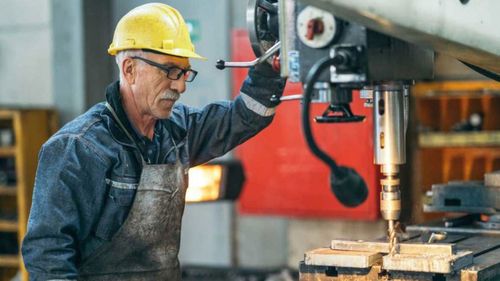Share this @internewscast.com
New research highlights the significant challenges older Australians face in the job market, even as the labor landscape tightens.
The Australian Bureau of Statistics (ABS) recently reported that the nation’s unemployment rate has climbed to 4.5%, marking a four-year high.
Reckon, a company specializing in accounting software, analyzed this data to identify the specific difficulties encountered by job seekers across different age categories.

One of the most prominent barriers for Australians aged 55 and older is the perception among employers that they are too old for certain positions.
Additionally, personal health issues and responsibilities such as caring for elderly relatives are also significant factors that prevent them from seeking employment or compel them to leave their jobs.
Among those aged 64 and older, 44% face age-related discrimination, while 21% of job seekers aged between 55 and 64 are similarly viewed as being beyond their prime by prospective employers.
Personal health issues impacted 26 per cent of those above 65 and 20 per cent aged 55 to 64.
Responsibilities for older relatives are also increasing for people in their mid-fifties and sixties, reflecting an ageing population.

Top 20 Aussie jobs that pay over $150,000 revealed
The research showed shifting retirement patterns amid a tight labour market were pitting younger and older generations against each other in the hunt for jobs.
For those aged in their late forties and early fifties, fewer people are retiring, though women remain more likely than men to step away from work.
Among 55 to 64-year-olds, retirement is also declining, with women again more likely than men to retire.
Beyond 65, retirement remains common, but more people are continuing to work past traditional retirement age, particularly men, reflecting changing financial needs, longer life expectancy, and changing attitudes towards work later in life.
But there are concerns employer bias is blocking many skilled people from employment that is essential to the national economy.
“With retirement ages creeping higher, we can’t afford to sideline people who still have plenty to offer,” said Reckon general manager Alex Alexandrou.
“If we can get better at supporting both early careers and later careers, we’ll build a stronger, fairer workforce that makes the most of every generation.”












